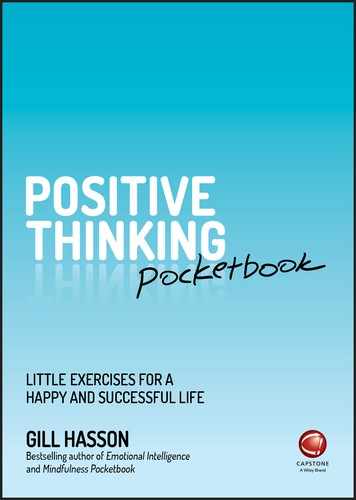SAYING ‘SHOULD’ OR ‘COULD’
Handle them carefully, for words have more power than atom bombs. —Pearl Strachan Hurd
Do you realise just how insidious the words ‘should’ and ‘shouldn't’ can be? They may appear to be harmless enough – simple words in a sentence – but actually they have an unhelpful or even harmful effect. Telling yourself that you ‘should’ be doing something is telling yourself that you ought to – even though it's very likely that you don't want to. Furthermore, when you think that you ‘should’ be saying, doing or feeling something, you are disapproving of yourself. Although you feel guilty, you're still not saying, doing or feeling it!
If you're thinking about what others ‘should’ or ‘shouldn't’ be doing, you're expressing disapproval about what they are or are not doing and probably feel frustrated and resentful when they don't comply with what you've suggested.
Even if you're trying to motivate and encourage someone else, as well-meaning as you might be, when you tell them that they ‘should’ or ‘shouldn't’ do something or feel a certain way – you're putting pressure on them. You're suggesting they're doing something wrong if they do or don't say, do or feel something.
So, as you might imagine, there are very few situations when the words ‘should’ and ‘shouldn't’ evoke a positive response!
